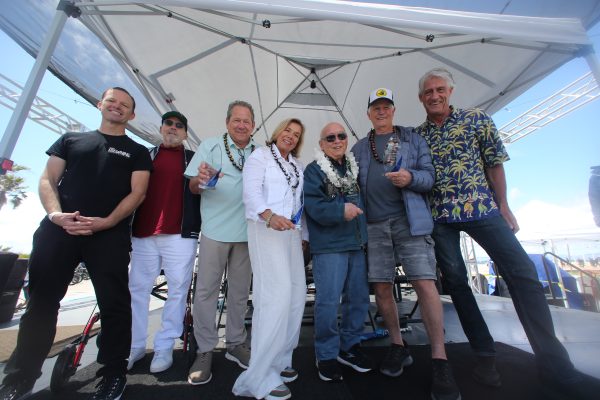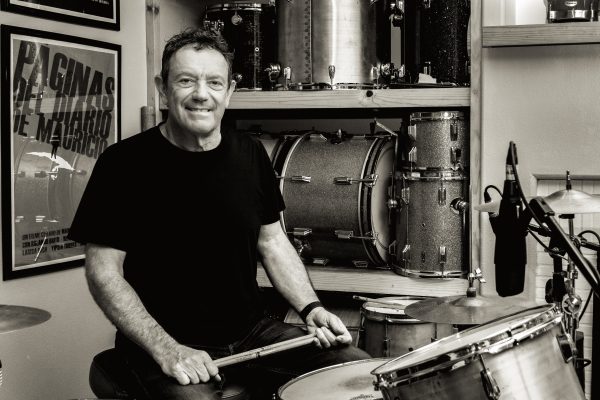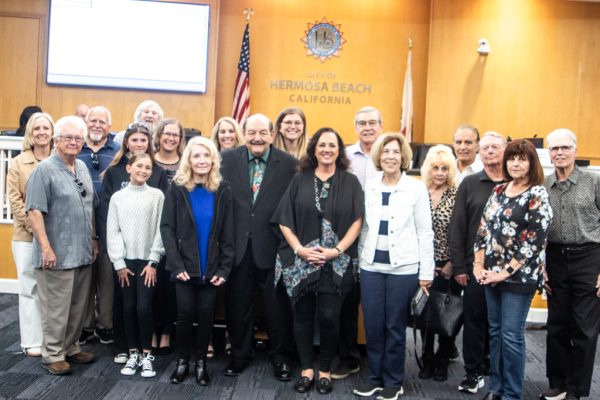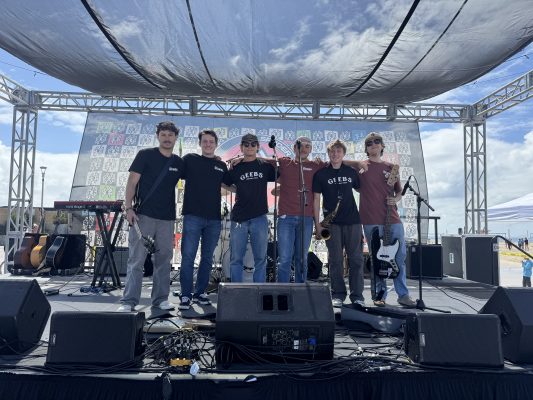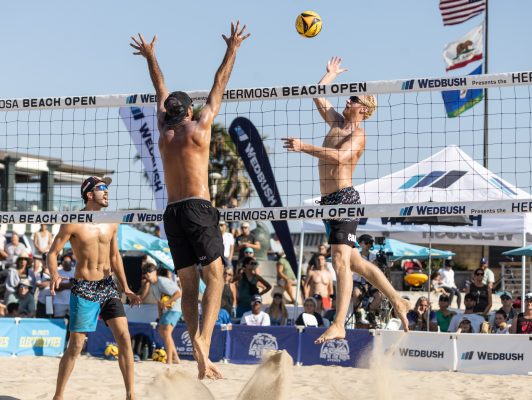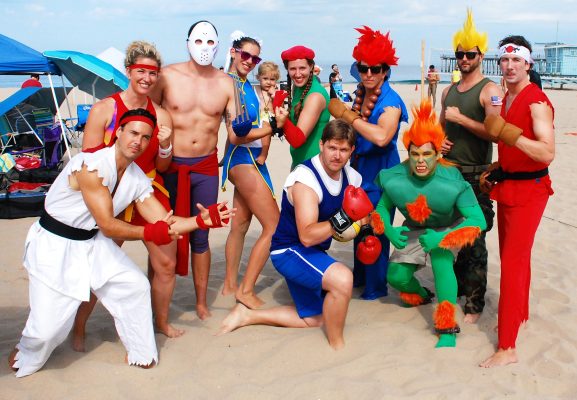
A group of Hermosa residents this week continued its pushback against tattoo parlors, asking the City Council for a halt to the opening of three planned studios, the imposition of earlier closing times, and a moratorium on future parlors.
They quickly gathered more than 225 signatures on an online petition to keep tattoo parlors away from schools, playgrounds and neighborhoods, and once again filled much of the City Council chambers to express their frustration. Among those approaching the council was an infectious disease specialist who said tattoo artists, clients and the community risk infections.
Council members agreed to have the city’s Planning Commission study the matter further, but cautioned against “false hope” that a way can be found to curtail tattoo parlors that, under the order of a federal appeals court, must be allowed in Hermosa.
Meanwhile, a partner in a tattoo studio, set to open at the southern edge of the Hermosa Avenue commercial district, said he is taking pains to run a business that will fit into the neighborhood, where homes stand next to stores and restaurants. The fight against the parlors is being led by neighbors of his business.
The city used to ban all tattoo parlors outright, until a tattoo artist sued. Following a four-year legal battle, a three-judge federal appeals panel ruled that tattoos are a form of “pure speech” protected by the First Amendment of the U.S. Constitution, and struck down Hermosa’s ban.
Tattoo artist Johnny Anderson, who had sued the city, opened a shop on the Pier Plaza. Then another parlor readied to open on Pacific Coast Highway, a third is preparing to open on the corner of Hermosa Avenue and Eighth Street, and a fourth is preparing to open on Aviation Boulevard between Ocean Drive and Prospect Avenue.
Hany Fangary, who lives a block from the Hermosa Avenue and Eighth Street location, wrote a letter to the City Council asking for shorter operating hours and a hold on parlors set to open.
Fangary also disputed previous statements by the city attorney that Hermosa had exhausted its recourse to further moratoriums on tattoo parlors, which the city previously imposed during the legal fight.
City Attorney Michael Jenkins responded that a moratorium could have been extended up to two years, but not without risk.
“Anderson had been waiting since roughly 2006 to open his store. As the court had ruled that what he wanted to do was a form of protected expression, we had a legitimate concern that if we delayed, the city could be sued for damages for violating his First Amendment rights,” Jenkins said. “When the court says a person has a right to speak, how does the government justify denying that right for two additional years? We concluded that we could not.”
Neighborhood concerns
“The general perception in the community out there is that tattoo parlors are associated with crime and people being drunk,” Fangary said in an interview. “If they are drinking and walking around our residential neighborhoods at 10 o’clock at night [the city-imposed closing time], there are safety concerns, crime concerns, and some property-value concerns for the neighbors.”
Jenkins said requiring the parlors to be placed far from homes, parks and schools would have served to shut them out of the city, in violation of the legal ruling.
After Hermosa officials lost the case to Anderson, the City Council ordered that tattoo parlors can stand no closer than 1,500 feet from each other along the PCH and Aviation Boulevard business corridors, and no closer than 1,000 feet in the downtown business district, primarily the Pier Plaza and a stretch of Hermosa Avenue.
The zoning for upper Pier Avenue is set in a specific area plan, approved before the court ruling, which does not include tattoo parlors among the permitted uses.
Anderson has set up shop in the Pier Plaza, and the planned studio at Hermosa Avenue is about as close to Anderson’s business as the 1,000-foot limit allows.
Hearts and minds
Gene Smith, who owns the sports-oriented UPI Marketing on Hermosa Avenue and is partners in the Hermosa Avenue tattoo studio with Shane McColgan of Shark’s Cove restaurant, said he understands resistance to change, but he assures neighbors that the studio will not cause problems for them.
The father of two, one in preschool and one at Hermosa Valley School, said it’s against state law to tattoo intoxicated people or minors, and said that “absolutely” won’t occur on Hermosa Avenue.
He said a private room within the studio will be used for the more discreet tattooing assignments upon parts of the body usually covered by clothing, and a manager will be on hand whenever the studio is open, which is also a legal requirement.
Smith said he has been explaining his plans for a “first class establishment” to friends and neighbors who approach him about the tattoo studio. A couple of the conversations took place at last weekend’s Hearts of Hermosa education fundraiser, he said.
Smith wears no tattoos, and said he became interested in opening a studio because of the operating plan, which involves providing space for artists like a hair salon does for stylists.
“It’s a great business model,” he said.
Gloves and blood
A second consecutive City Council meeting delved deeply into tattoo talk on Tuesday.
Hermosa physician James McKinnell, a specialist in infectious diseases, told the council that he was concerned with infections to clients, tattoo artists and studio employees, and the community as a whole.
He said enforcement of health and safety regulations is “either ineffective or nonexistent.”
McKinnell said he visited a handful of tattoo parlors in the Los Angeles area and found blood left on a chair after a client had left it, and at least one artist “using gloves on more than one client.”
He said he also found one parlor that was notably up-to-date on regulations, with all employees trained in first aid, CPR and “biohazard” elements of the business.
Another resident warned that the tattoo artists are at the gates.
“The citizens of Hermosa Beach are basically screwed,” he said.
He said the city should look into banning body piercing, which is offered by tattoo parlors but was not dealt with in the court ruling.
“We shouldn’t give these people any leeway. They’re pushing into the city, and we should push back,” he said.
Carolyn Petty said she previously moved away from the neighborhood of the Pier Plaza and its nightlife, and now wishes she had left town altogether.
“I made the decision a few years ago, when I was moving, that I wanted to stay in Hermosa. I regret that decision,” she said.
Resident Susan Darcy lauded Councilman Kit Bobko for his unsuccessful push to limit tattoo parlors to the PCH and Aviation business corridors, saying the parlors are not “family-friendly businesses.” Bobko could persuade only Councilman Michael DiVirgilio to back his push for PCH and Aviation.
After the meeting, Bobko said the city could have defended potential court challenges against the PCH-Aviation plan by claiming that while tattoo parlors cannot be banned, the city’s zoning priorities should be respected as well.
Caution urged
In response to questions from Mayor Pete Tucker, Jenkins said it is possible to reconsider aspects of the ordinance regulating tattoo parlors.
“The court doesn’t tell us how to implement its decision [allowing the parlors], it just tells us to implement its decision,” he said.
“It’s possible to have a different approach, but we have to be careful, because we’ve been told that whether we like it or not, we have to have tattoo parlors here,” Jenkins said.
Restrictions on freedom of expression are “presumptively suspect” by courts, he said.
He also cautioned that all of Hermosa’s commercial corridors stand close to homes.
“Throwing all the tattoo parlors on PCH or Aviation might make some people happy and make other people unhappy,” he said.
Council members pledged to do what they can to ease the plight of tattoo parlors’ neighbors.
While the city was unable to convince the appeals court that health and safety concerns could allow the banning of tattoo parlors, if the parlors cause problems, that would provide the hard evidence needed to justify stiffer regulation, DiVirgilio said.
Councilman Jeff Duclos pointed out that the owners of the property on which the parlors will open “have complete discretion in how they use their property,” and pointed the parlors’ critics in that direction.
“It seems to me there is an important part of the dialogue in terms of what businesses you want,” Duclos said. “…That avenue is there for you and should be there for you.” ER

